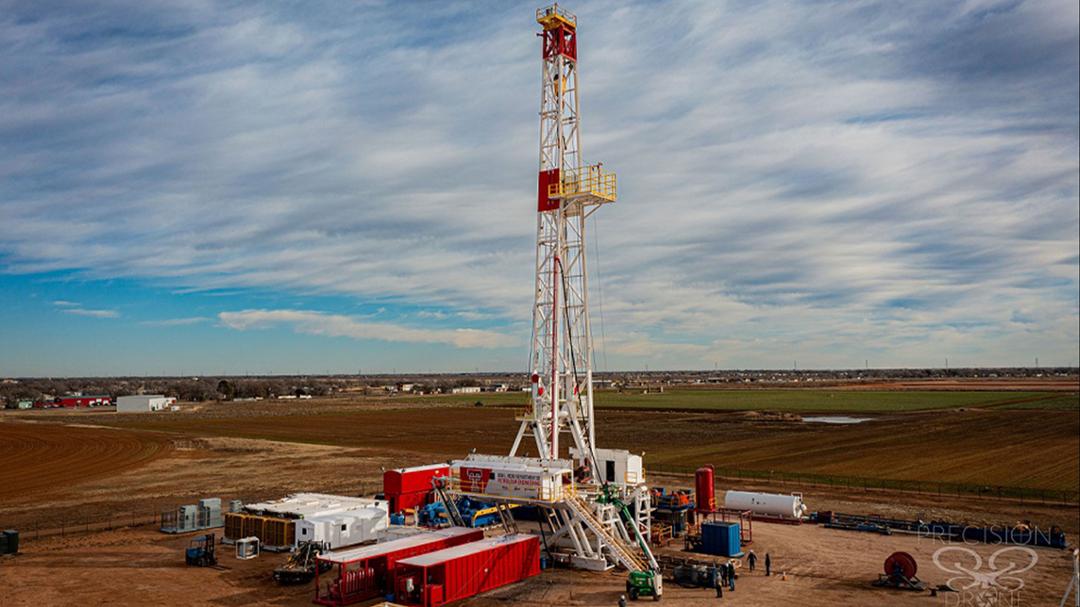Just as the actors and crew of Taylor Sheridan’s “Yellowstone” attended cowboy camp, his latest series, “Landman,” required oilfield training from Texas Tech experts.
Marshall Watson was sure he received a spam phone call.
As the department chair of the Bob L. Herd Department of Petroleum Engineering, it isn’t often he is contacted by Paramount Pictures to assist with an upcoming production. His expertise lies far outside the film industry.
“The closest I’ve come to show business is all the videos we’ve made in the department and on campus,” he mused.
But with a green light from the Edward E. Whitacre Jr. College of Engineering leadership, Watson accepted an offer to help with “Landman:” a Paramount+ series that depicts the challenges of the oil business in West Texas.
Watson hadn’t heard of the show, but he was familiar with its creator, Taylor Sheridan, from his appearance in the 2023 Presidential Lecture & Performance Series. He learned not only about Sheridan’s previous series, “Yellowstone,” but that he owns and operates two Texas ranches, including the 6666 Ranch that spans 260,000 acres.
“Yellowstone” is a Western drama that has been filmed at the 6666 Ranch outside Borger and other Texas Panhandle spots. It tells the story of a family that owns the largest ranch in Montana, constantly having to defend their land.
To prepare the actors of “Yellowstone” to embody the cowboy lifestyle, Sheridan sent them to “cowboy camp,” which actor Luke Grimes describes as a three-day pack trip into the middle of nowhere – sleeping in tents, resting their heads against saddles and working together through the unexpected.
It seemed “Landman” would require the same sort of training, but this time it was an immersion into the world of oil rig workers.
“They said Sheridan is very meticulous and pays close attention to details,” Watson remembered the crew members telling him. “He wanted it as realistic as possible.”
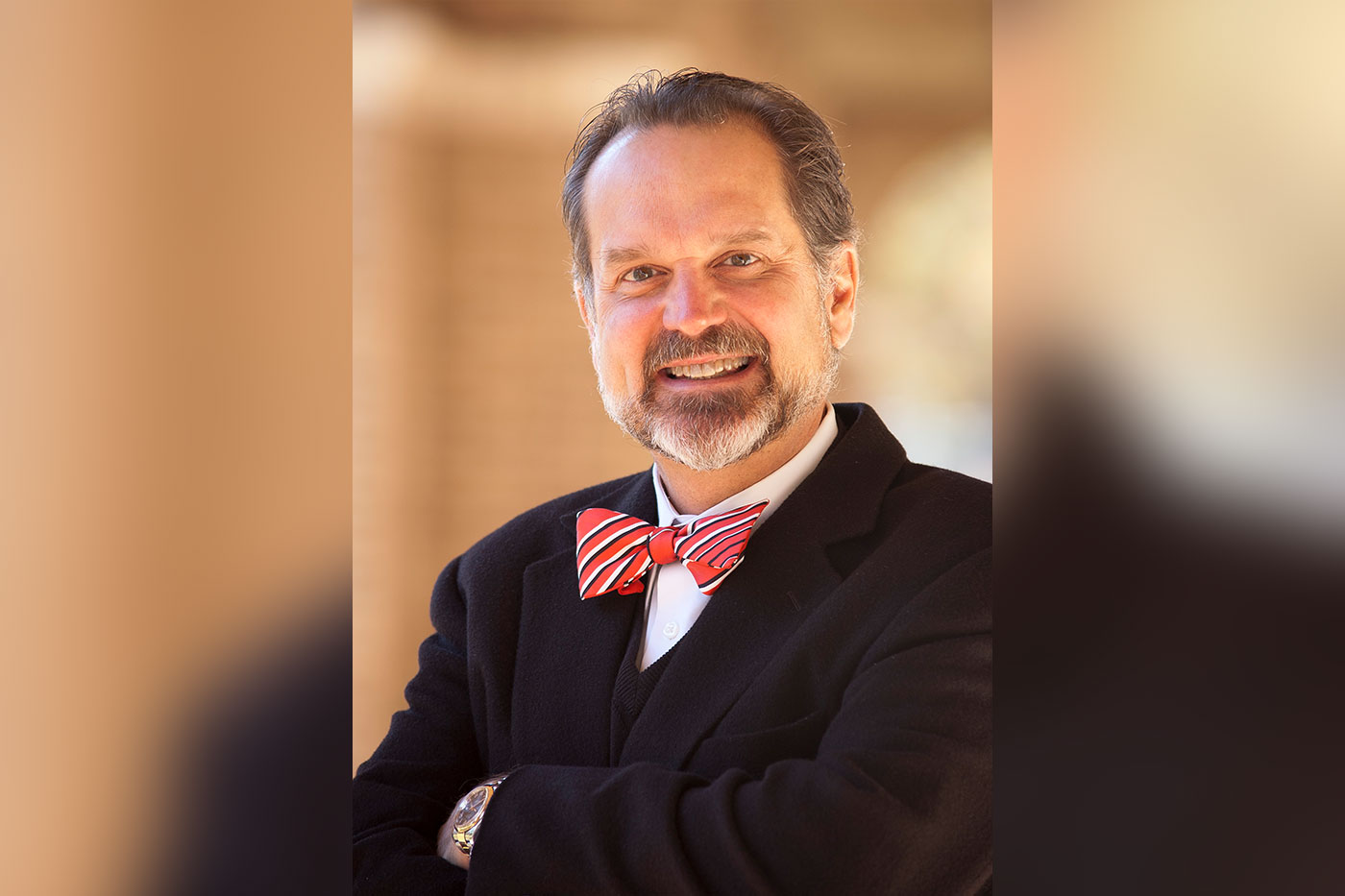
In came Watson’s expertise in the oil and gas industry, which he has shared with passion since he arrived at the Texas Tech campus in 2004 (first for a master’s degree, then a doctoral degree and faculty position). Prior to that, he racked up 23 years of experience with both major and independent oil companies, beginning with Shell Oil Company working as a production and reservoir engineer in the Permian Basin.
Watson explains the oil and gas business is more high-tech than most give it credit for. Over the years, he has had the opportunity to share his viewpoints across many generations through the Oilfield Technology Center (OTC): from elementary students, to incoming first-year students, to congressmen.
Watson believes the OTC is how the “Landman” staff knew to contact him in the first place. The unique educational facility made news headlines in spring 2023 when it made history with the first full-scale operational oil rig on a university campus in the nation.
The OTC is designed to serve both research and teaching needs, as well as third party workforce development training. Or, in this case, those pretending to be members of said workforce, as Watson led the crew through the center in November 2023.
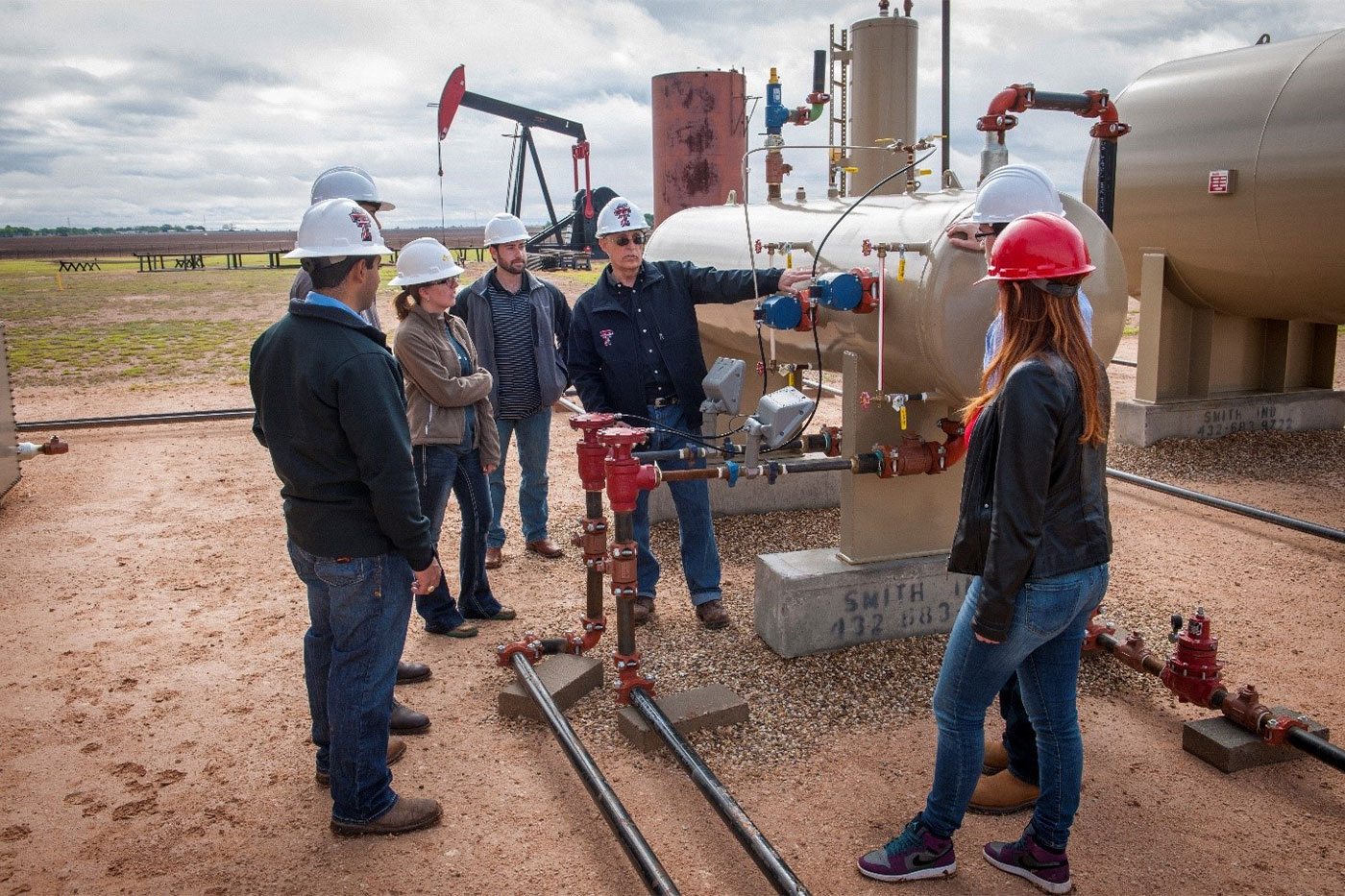
“I kind of gave them oilfield 101,” he recalled, “and then they wanted to come back again.”
That time, Watson took them on a field trip to the oilfields just north of Lubbock near Shallowater, where industry workers were actively drilling wells.
A few months later, Watson was asked to serve as an on-set adviser in Fort Worth. He agreed to one day of presentations to crew members gathered in a conference room followed by a visit to a drilling rig, but he didn’t feel comfortable spending any more time away from the Texas Tech campus.
From there, Watson recommended further questions go to a Texas Tech alumnus and Whitacre College distinguished engineer: Terry Fuller. Fuller is not only the president and founder of Phoenix PetroCorp, Inc., an independent oil and gas production company, but he lives in the Dallas-Fort Worth area.
“They wanted to know all the realistic issues that could happen,” Watson said. “We went through several scenarios, but the problem is the realistic things were too difficult to get an audience to understand.”
While Watson mainly met stunt doubles and others who work behind the scenes of the production, Fuller was around Sheridan and the actors – including the main character of “Landman,” Billy Bob Thornton.
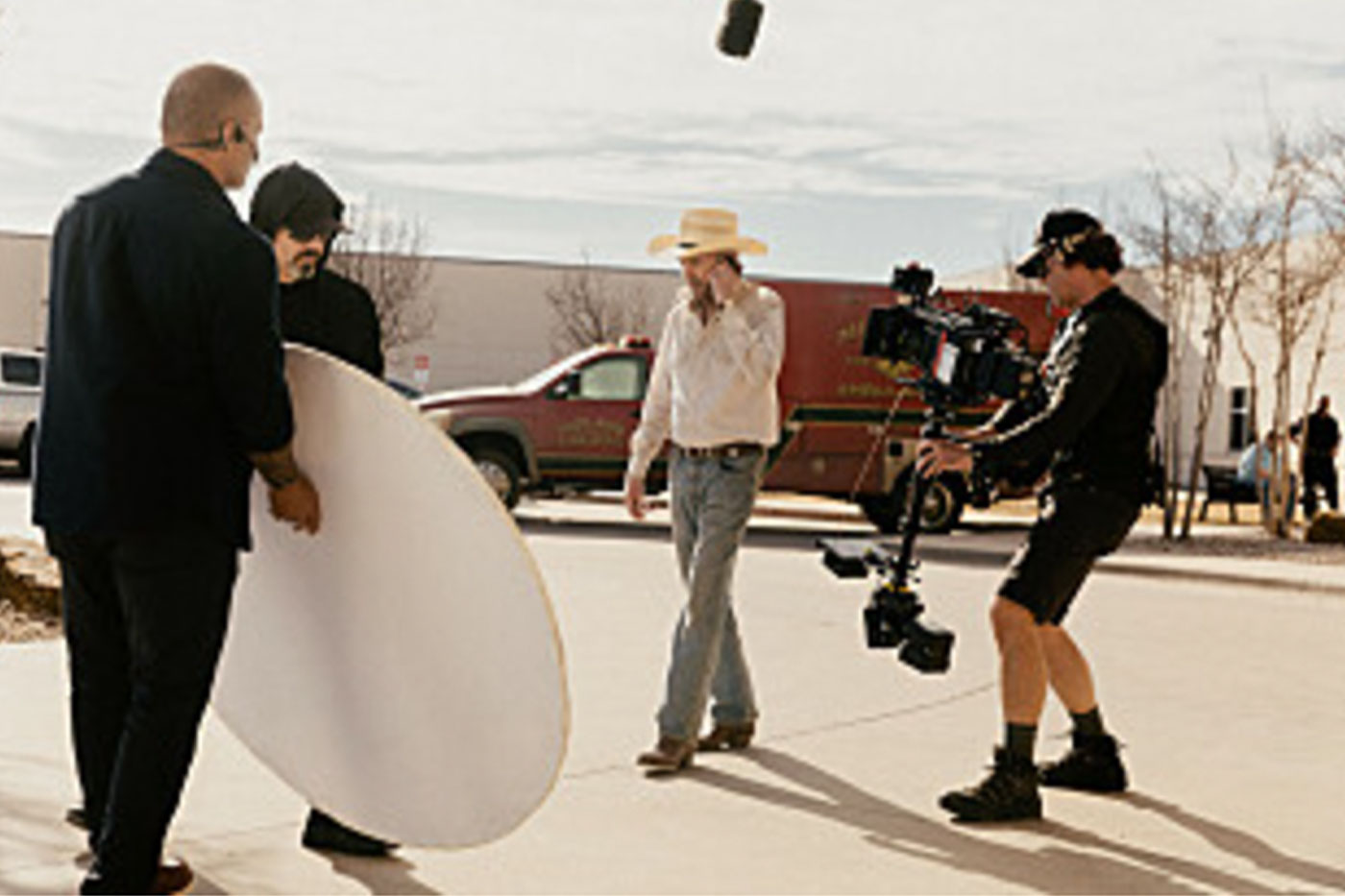
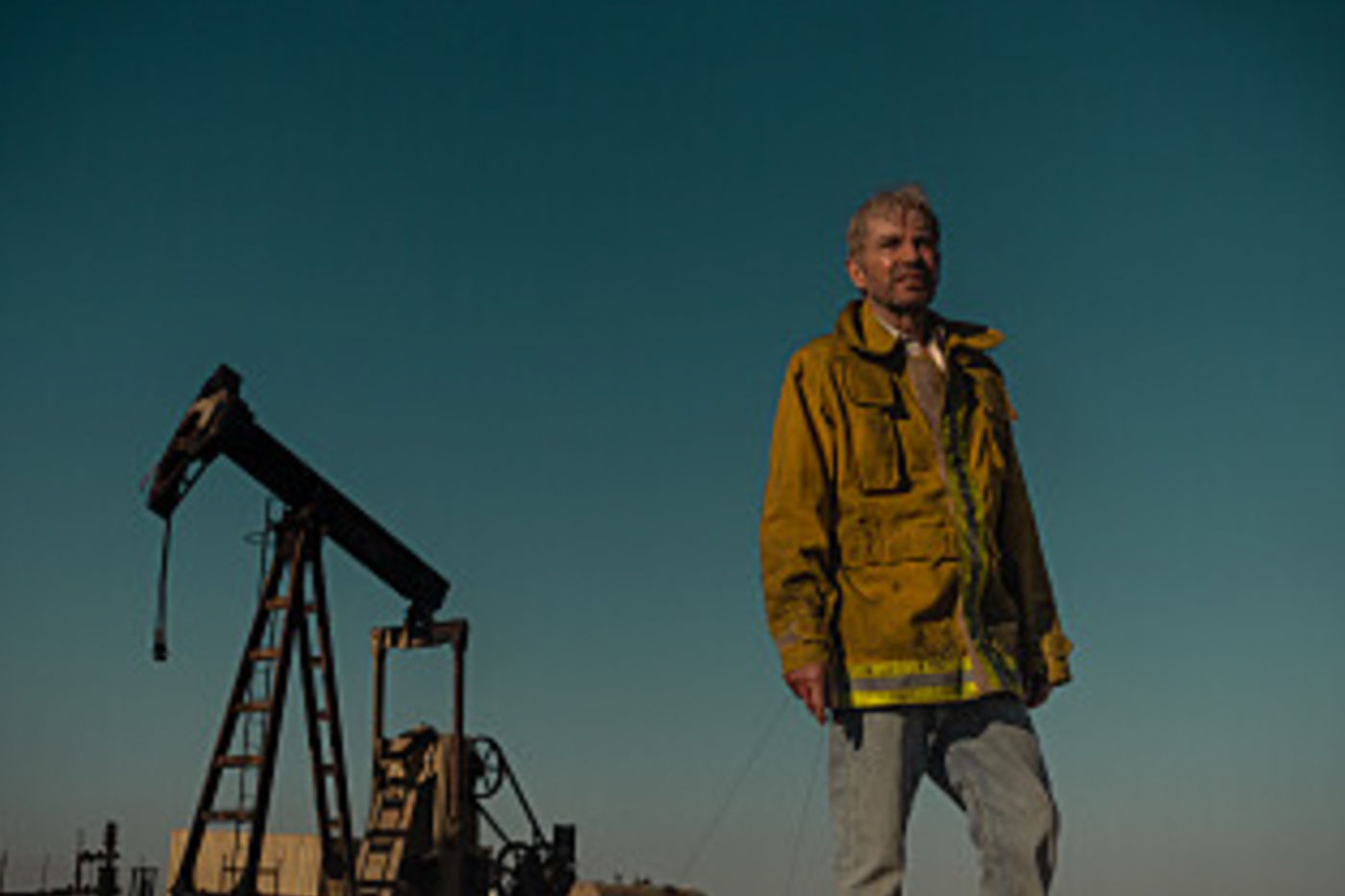
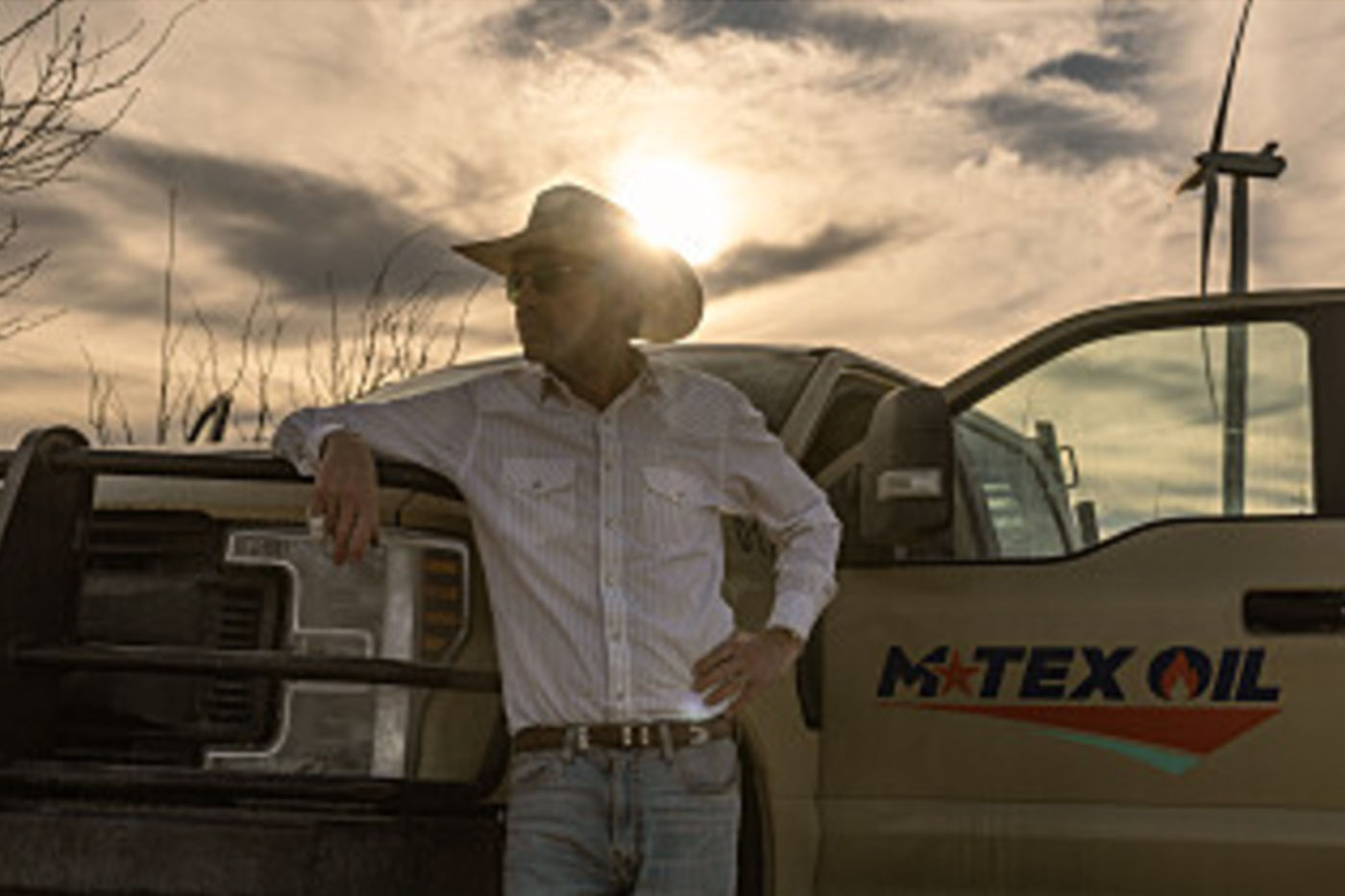
Watson was eager to see if Thornton would channel the antics he used for his leading role in “Bad Santa,” but to find out, he had to wait until the show premiered Nov. 17, 2024.
Red Raider Reveal
When Watson watched the first episode of “Landman,” he was met with explosive scenes that meet the standards of engaging content, infiltrated with much more drama than he ever experienced during an average workday in the oilfield.
“Hollywood is Hollywood,” he resolved. “Blowing up stuff is a lot less boring to watch than gas hissing, or something like that.”
Another unexpected element of the show delighting many Red Raiders are the Texas Tech cameos, such as a tattoo on a character’s bicep and a mention about contacting the National Wind Institute for information on wind turbines.
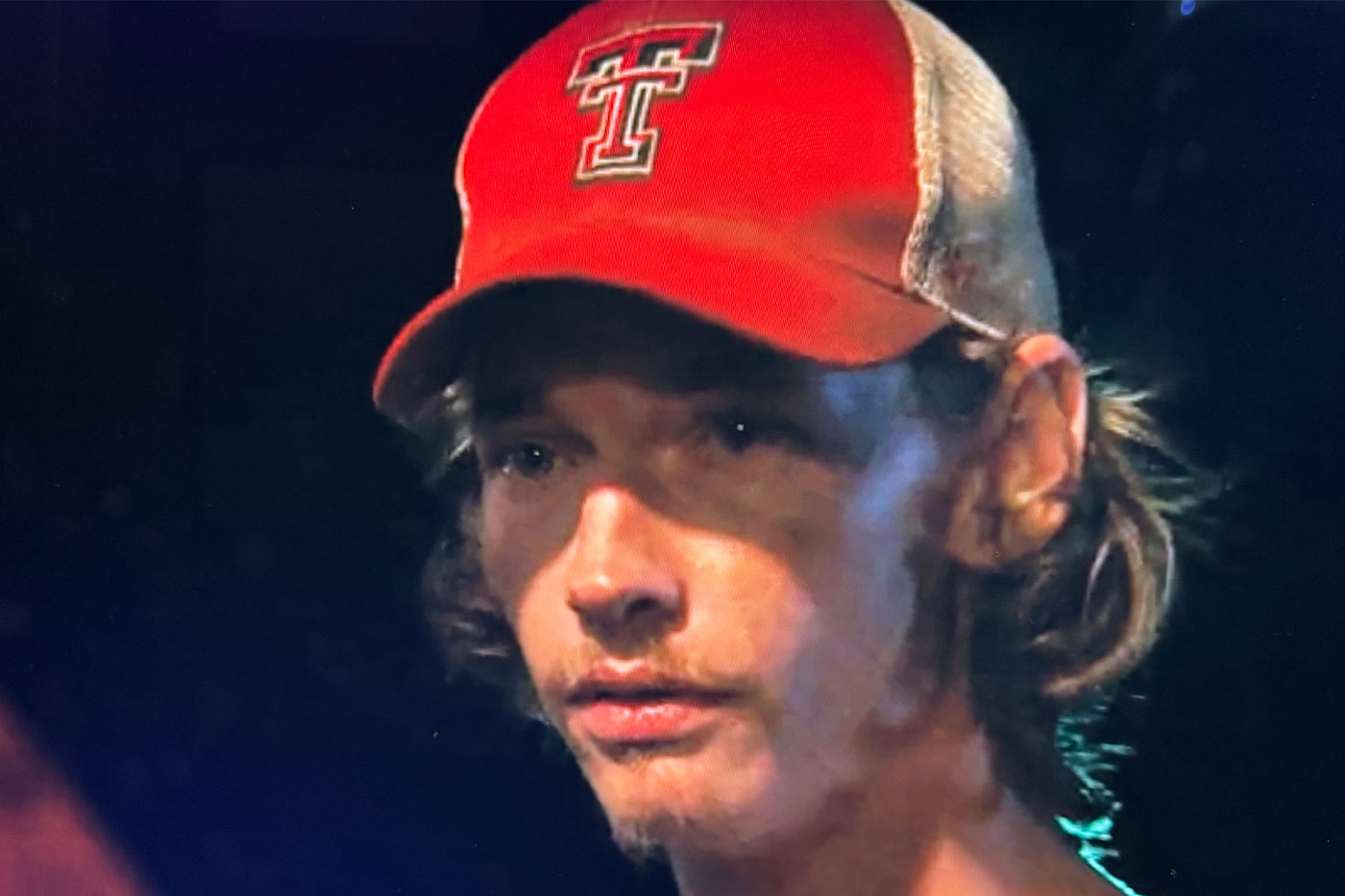
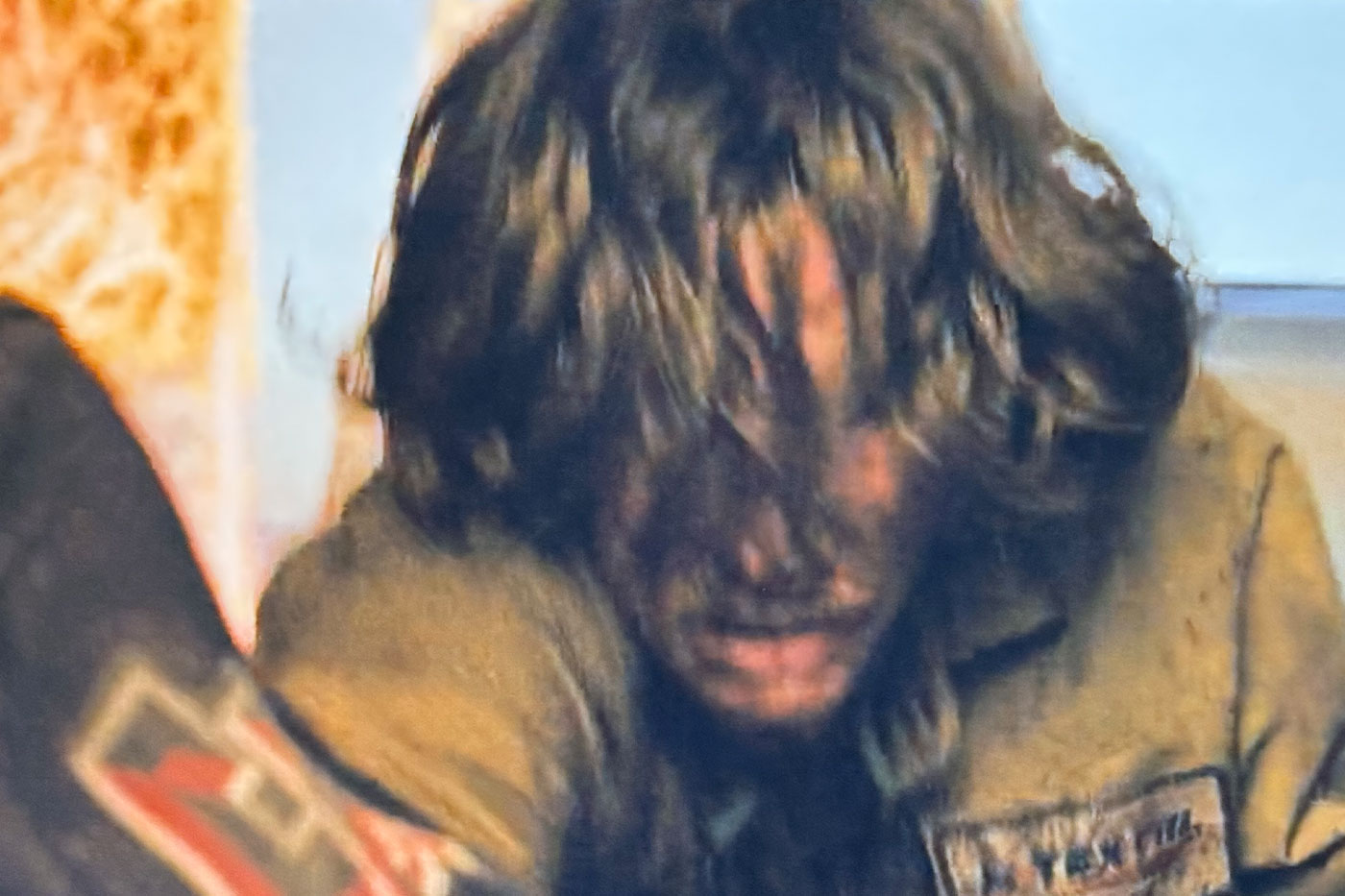
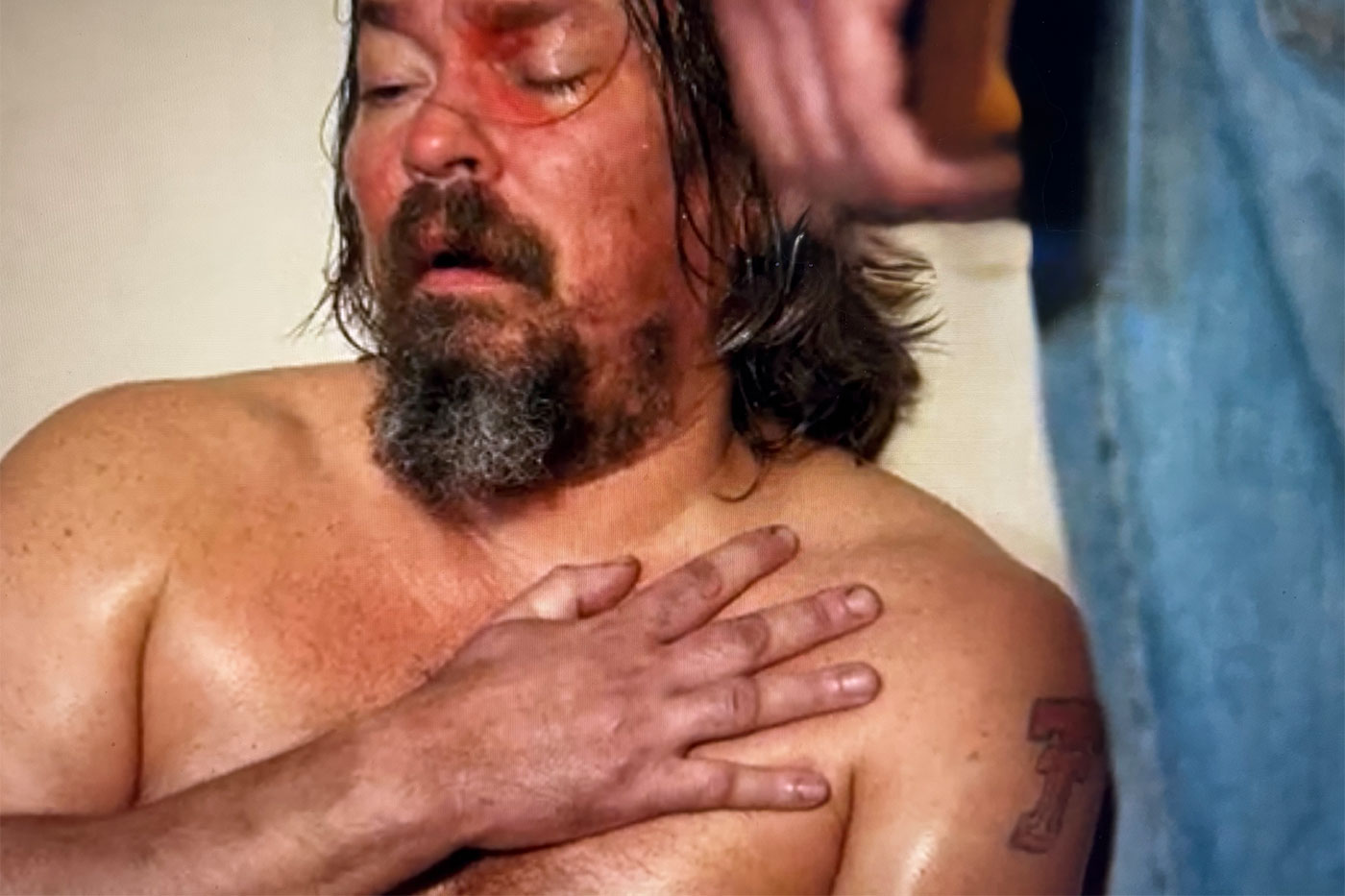
Even the son of Thornton’s character, who is played by Jacob Lofland, is seen wearing the Double T on his hat as a wrestler who dropped out of the university. Lofland was quoted referencing how Texas Tech prepared him for his role as he learned the science of the industry and then spent four days on drilling rigs.
“There’s no way to act like you know what you’re doing in this business without having to do it,” he explained.
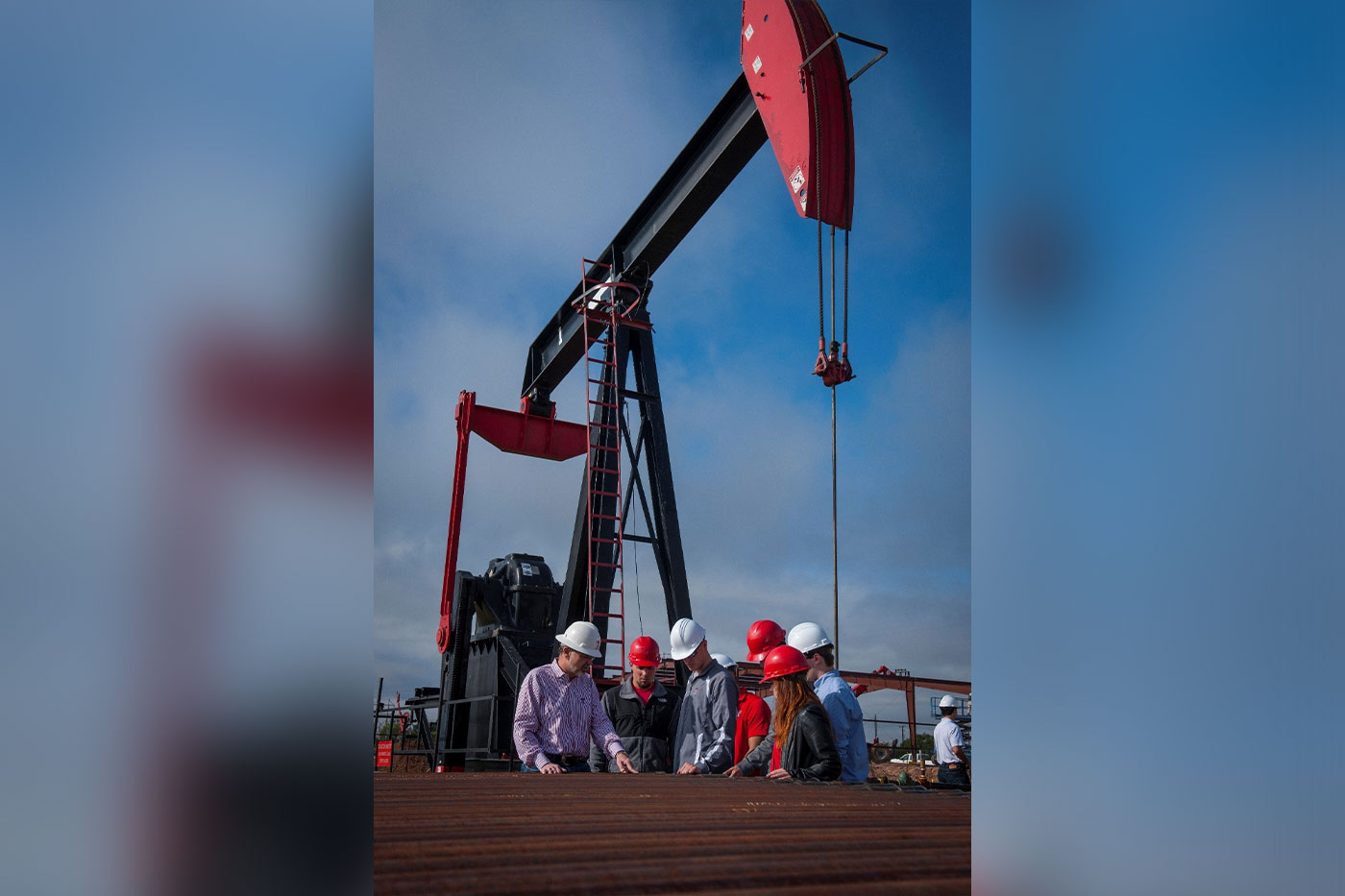
Just as doctors watch movies based in hospitals with a technical eye, Watson finds himself in the same position when a new “Landman” episode airs each Sunday. Although it may not always translate on screen, Watson assures safety is the highest priority of the oil and gas industry, with special equipment and measures in place to prevent accidents like the ones that occur on the show.
Whether or not the show will lead to an increased interest in the industry is undetermined for now. In the meantime, Watson will continue his educational endeavors to ensure the next generation of petroleum engineers are ethical, professional, responsible and ready to provide solutions that will impact the world.
"I’m very interested in teaching about the oil and gas business with people that have not heard of it or are not knowledgeable about it,” he said. “That is what we’re really trying to do. We’re not bad people and there’s so many misconceptions about the industry. So, when I have the opportunity to share how it works, it’s always a pleasure to do that.”

